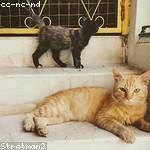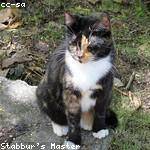"Title
Paradise is nearer to one of you than his shoelace, and so is Hellfire
Hadith_Text
Ibn Mas‘ūd (may Allah be pleased with him) reported: The Prophet (may Allah's peace and blessings be upon him) said: 'Paradise is nearer to one of you than his shoelace, and so is Hellfire.""
Explanation
The Prophet (may Allah's peace and blessings be upon him) said that Paradise and Hellfire are nearer to a person than the leather strap over his feet, which is so close to him. This is because a person may do an act that pleases Allah not thinking it will earn him a great reward, yet it takes him to the Garden of Bliss. Alternatively, a person may commit a sin to which he does not pay much attention, but it incurs the displeasure of Allah and causes him to sink deeply into Hell-fire for so many years – and he was unaware of that.
Benefits
Good deeds lead to Paradise while sins lead to Hellfire.
Entering Paradise is easy if one has the right intent and do good deeds.
Good deeds and sins can exist in the simplest of things. So, a person should not belittle doing simple pious acts or underestimate doing small evils.
It encourages us to do good deeds, even if they are little, and discourages us from committing evils, no matter how small.
Examples are given to make the intended meaning clearer.
Grade
Sahih/Authentic.
Takhrij
[Al-Bukhari]
"
Ontdekken posts
Ontdek boeiende inhoud en diverse perspectieven op onze Ontdek-pagina. Ontdek nieuwe ideeën en voer zinvolle gesprekken
"Title
Do not be importunate in asking (for something), for by Allah, if one of you asked me for something and I gave it to him while I am reluctant, there will be no blessing in what I gave him
Hadith_Text
Abu ‘Abdur-RahmÄn Mu‘Äwiyah ibn Abi SufyÄn (may Allah be pleased with him) reported: The Messenger of Allah (may Allah's peace and blessings be upon him) said: ""Do not be importunate in asking (for something), for by Allah, if one of you asked me for something and I gave it to him while I am reluctant, there will be no blessing in what I gave him.""
Explanation
Mu‘Äwiyah (may Allah be pleased with him) relates that the Prophet (may Allah's peace and blessings be upon him) forbade people from being persistent in asking for something, noting that such persistence removes the blessing from the given thing. Then, the Prophet swore that if someone asked him for something in a persistent manner and he gave it to him reluctantly, that thing would be bereft of blessing due to the persistent asking.
Benefits
Grade
Sahih/Authentic.
Takhrij
[Muslim]
"
"Title
I know a word that if he said, his rage would go away. If he said: I seek refuge with Allah from the accursed devil, his rage would subside
Hadith_Text
SulaymÄn ibn Surad (may Allah be pleased with him) reported: While I was sitting with the Prophet (may Allah's peace and blessings be upon him), two men began to insult each other, and the face of one of them turned red and the veins of his neck got swollen. The Messenger of Allah (may Allah’s peace and blessings be upon him) said: ""I know a word that if he said, his rage would go away. If he said, 'I seek refuge with Allah from the accursed devil', his rage would subside."" So, they said to him: ""The Prophet (may Allah's peace and blessings be upon him) tells you to seek refuge with Allah from the accursed devil.""
Explanation
SulaymÄn ibn Surad (may Allah be pleased with him) relates in this HadÄ«th that two men exchanged insults in the presence of the Prophet (may Allah's peace and blessings be upon him) and one of them grew so angry that his face became red and swollen. On seeing this, the Prophet (may Allah's peace and blessings be upon him) remarked: I know a word that if he said, his rage would go away
— Gevoel Post
"Title
O mother of HÄrithah, there are many ranks in the gardens of Paradise, and your son has attained Al-Firdaus
Hadith_Text
Anas (may Allah be pleased with him) reported that Umm Ar-Rubay‘ bint al-BarÄ', who was the mother of HÄrithah ibn SurÄqah, came to the Prophet (may Allah's peace and blessings be upon him) and said: ""O Messenger of Allah, will you not tell me about HÄrithah (he was killed in the battle of Badr)? If he is in Paradise, I shall show endurance, but if he has met another fate, I will bitterly weep for him."" He replied, ""O mother of HÄrithah, there are many ranks in the gardens of Paradise, and your son has attained Al-Firdaus.""
Explanation
Meaning of the HadÄ«th: HÄrithah ibn SurÄqah (may Allah be pleased with him) was martyred during the battle of Badr by an arrow that no one knew where it came from. So, his mother went to the Prophet (may Allah's peace and blessings be upon him) and asked him about her son's fate. She was worried that he would not be considered a martyr, because he was killed by a random shot and did not participate in the battle. Another HadÄ«th reads: ""He was killed during the battle of Badr and was hit by an unknown arrow."" No one knows the shooter or where it comes from. Anas (may Allah be pleased with him) reported in another HadÄ«th narrated by Ahmad and An-NasÄ'i that when HÄrithah went to a high place to patrol and be on the lookout for enemies to inform others about their position, he was shot dead by an arrow. For this reason, his mother (may Allah be pleased with her) said that if her son is in Paradise, she will be forbearing and patient about missing him and seek reward from Allah. Moreover, she will be happy that he was killed in the cause of Allah and has won martyrdom. If he has met another fate, she will bitterly weep for losing him and the loss of his life in vain. The Prophet (may Allah's peace and blessings be upon him) told her that there are many gardens of Paradise. In Al-BukhÄri's narration, the Prophet (may Allah's peace and blessings be upon him) said: ""Do you think that it is only one garden? Verily, there are so many gardens, and he is in the highest Firdaus."" This is a unique place, which is the best and highest rank, in Paradise. This is why the Prophet (may Allah's peace and blessings be upon him) said: ""If you ask Allah for something, ask for the Firdaus
— Gevoel Post
"Title
Shall I not inform you of the best of your deeds which are the most praiseworthy in the sight of your Lord
Hadith_Text
Abu Ad-DardÄ’ (may Allah be pleased with him) reported that the Messenger of Allah (may Allah's peace and blessings be upon him) said: ""Shall I not inform you of the best of your deeds which are the most praiseworthy in the sight of your Lord, and the highest in rank, and better for you than spending gold and silver in charity, and better for you than encountering your enemies in battle so they strike your necks and you strike theirs?"" They said: 'Certainly.' He said: ""Remembrance of Allah, the Exalted.""
Explanation
The Prophet (may Allah's peace and blessings be upon him) asked his Companions if they would like him to tell them what the best deed they can do is, that is regarded as the most pious act in the sight of Allah, that will raise their rank most (in faith and Paradise), that is better for them than spending gold and silver for the sake of Allah, and which is better for them than meeting the non-believers in warfare where they slay them and are slain, striving to raise the word of Allah to ascendancy. The Companions replied that they most certainly want him to tell them what is this great deed. He said that it is Dhikr of Allah, the Almighty.
Benefits
Grade
Sahih/Authentic.
Takhrij
[Ibn Maajah]
"
"Title
I have told you repeatedly to use the tooth-stick
Hadith_Text
Anas (may Allah be pleased with him) reported that the Messenger of Allah (may Allah's peace and blessings be upon him) said: ""I have told you repeatedly to use the tooth-stick.""
Explanation
HadÄ«th explanation: The Prophet (may Allah's peace and blessings be upon him) stressed using the tooth-stick. He repeatedly advised his followers to use it at all times, as a recommended action and not an obligation, due to the many and great benefits it involves, the greatest of which is that it is pleasing to Allah, Glorified and Exalted, [as mentioned in the famous authentic HadÄ«th: “The tooth-stick cleanses the mouth and pleases the Lord.â€
Benefits
Grade
Sahih/Authentic.
Takhrij
[Al-Bukhari]
"
"Title
The Prophet (may Allah's peace and blessings be upon him) said to me: Recite the Qur’an to me. I said: O Messenger of Allah, shall I recite it to you while it has been revealed to you? He replied: I love to hear it being recited by others
Hadith_Text
Ibn Mas‘ūd (may Allah be pleased with him) reported: The Prophet (may Allah's peace and blessings be upon him) said to me: ""Recite the Qur’an to me."" I said: ""O Messenger of Allah, shall I recite it to you while it has been revealed to you?"" He replied: ""I love to hear it being recited by others."" So I recited a portion of SÅ«rat An-NisÄ' to him. When I reached the verse: {So how [will it be] when We bring from every nation a witness and we bring you [O Muhammad] against these [people] as a witness?} [SÅ«rat An-NisÄ': 41] He said: ""Enough for now."" As I looked at him, I saw that his eyes were shedding tears.
Explanation
The Prophet (may Allah's peace and blessings be upon him) asked Ibn Mas‘ūd to recite some verses of the Qur’an to him. Ibn Mas‘ūd (may Allah be pleased with him) replied: ""O Messenger of Allah, how can I recite it to you while it has been revealed to you and you have greater knowledge of it than I!"" The Prophet (may Allah's peace and blessings be upon him) explained: ""I love to hear it being recited by others."" So Ibn Mas‘ūd recited a portion from SÅ«rat An-NisÄ' to him, and he reached the verse that says: {So how [will it be] when We bring from every nation a witness and we bring you [O Muhammad] against these [people] as a witness?} [SÅ«rat An-NisÄ': 41] Meaning: how will your and their condition be? At this point, the Prophet (may Allah's peace and blessings be upon him) said: ""Enough for now"", meaning: stop the recitation. Ibn Mas‘ūd remarked: ""When I looked at him, I saw that his eyes were filled with tears out of mercy towards his followers.""
Benefits
Grade
Sahih/Authentic.
Takhrij
[Al-Bukhari and Muslim]
"
"Title
He did a little but was greatly rewarded
Hadith_Text
Al-BarÄ' (may Allah be pleased with him) reported: A man wearing an iron armor came to the Prophet (may Allah's peace and blessings be upon him) and said: ""O Messenger of Allah, shall I fight or embrace Islam?"" He said: ""Embrace Islam, then fight."" He embraced Islam, then fought and was killed. The Messenger of Allah (may Allah’s peace and blessings be upon him) said: ""He did a little but was greatly rewarded.""
Explanation
A man came to the Prophet (may Allah's peace and blessings be upon him) wishing to fight in the cause of Allah with him. He was completely covered in an iron armor, but had not yet entered Islam. He said: ""O Messenger of Allah, do I fight in the cause of Allah and then enter Islam, or enter Islam then fight in the cause of Allah?"" he said to him: ""Embrace Islam, then fight in the cause of Allah."" So, the man embraced Islam, then fought in the cause of Allah until he was killed. Thereupon, the Messenger of Allah (may Allah’s peace and blessings be upon him) said: ""He did a little but was greatly rewarded"", i.e. he did a little and was rewarded a lot in relation to the period he lived as a Muslim, as the time between the man's embracing of Islam and his death was a short one, yet he was rewarded in abundance. That is because fighting in the cause of Allah, Exalted, in order to raise high His Word is one of the most virtuous deeds and most tremendous in reward.
Benefits
Grade
Sahih/Authentic.
Takhrij
[Al-Bukhari and Muslim]
"
"Title
The Messenger of Allah (may Allah's peace and blessings be upon him) was asked: Which part of the prayer is the best? He replied: The long standing
Hadith_Text
JÄbir (may Allah be pleased with him) reported that the Messenger of Allah (may Allah's peace and blessings be upon him) was asked: ""Which part of the prayer is the best?"" He replied: ""The long standing.""
Explanation
The Prophet (may Allah's peace and blessings be upon him) was asked what actions in the prayer were the best. They asked this for their eagerness to achieve the most amount of rewards. They meant which part of prayer e.g, bowing or prostration is the best? He answered that it was the long standing in the prayer.
Benefits
Grade
Sahih/Authentic.
Takhrij
[Muslim]
"
"Title
The best charity is providing the shade of a tent in the cause of Allah, or providing a servant for one who strives in the cause of Allah, or providing a young she-camel for one striving in the cause of Allah
Hadith_Text
Abu UmÄmah (may Allah be pleased with him) reported that the Messenger of Allah (may Allah's peace and blessings be upon him) said: ""The best charity is providing the shade of a tent in the cause of Allah, or providing a servant for one who strives in the cause of Allah, or providing a young she-camel for one striving in the cause of Allah.""
Explanation
The best type of charity one can give are these three things: the shade of a tent or canopy, a servant (as a gift or loan), or a young female camel that is ready for mating, whether this charity is given to those fighting in the cause of Allah or other people who are needy. Giving charity to the needy is also considered to be in the cause of Allah. Perhaps these things were specified because of people's need for them at that time, so the Prophet (may Allah's peace and blessings be upon him) wished to encourage offering them. As to the current times, the people's need for these things is almost non-existent, or very limited in some places. This meaning is also found in the HadÄ«th reported by ‘Ā’ishah (may Allah be pleased with her) where the Prophet (may Allah's peace and blessings be upon him) said: ""The people of a house without dates are hungry"" [Muslim]. Sheikh Ibn BÄz (may Allah have mercy upon him) said: ""This HadÄ«th is intended to mean the people who eat dates often, such as the people of MadÄ«nah in his time (the time of the Prophet), and any people like them whose diet depends on dates.""
Benefits
Grade
Hasan/Sound.
Takhrij
[At-Tirmidhi]
"









Nasreen Rauf
Verwijder reactie
Weet je zeker dat je deze reactie wil verwijderen?
Yusuf Sow
Verwijder reactie
Weet je zeker dat je deze reactie wil verwijderen?
MuslimMoments
Verwijder reactie
Weet je zeker dat je deze reactie wil verwijderen?